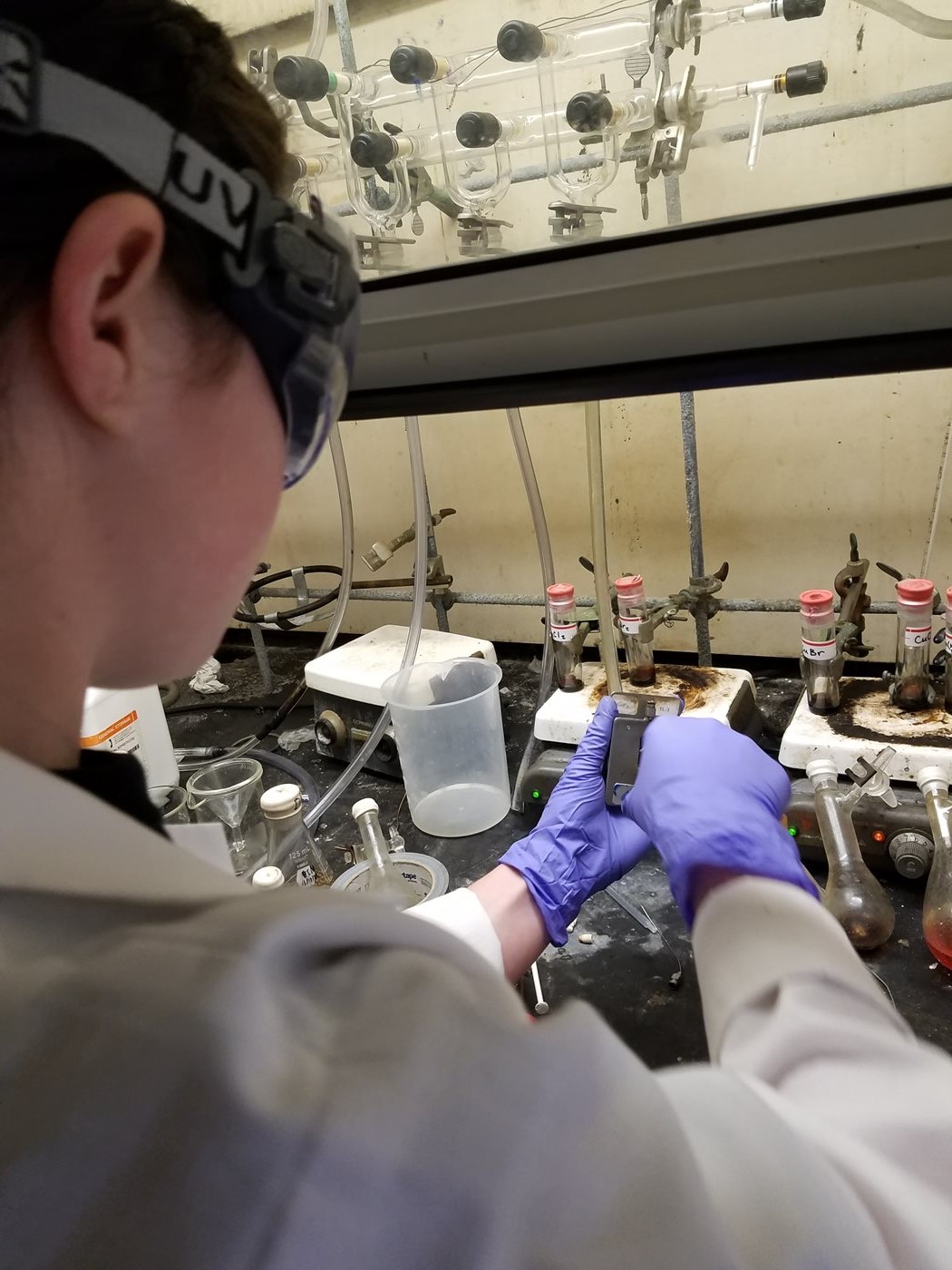This summer I have had the pleasure of participating in the REU program, which is designed to take students from undergraduate institutions without many research opportunities and giving them that experience. Now I have never had to mentor someone on a one on one basis before, so this was uncharted territory for me.
What I expected to happen was to get a helper that knew what they were doing that could help me advance my research over the summer, but what I got was someone who was a novice that had little to no idea how chemical research worked. I’m not exactly sure why I expected someone without any real research background to come in and be a completely self-sufficient chemist, but now I know; however, thanks to a lot of diligent work put in by both me and my mentee, she is now a self-sufficient research chemist. This didn’t exactly come easily, but I will just share a few lessons I learned about mentoring this summer:
- Mentoring is not about you, it’s about them.
The entire point of the REU program is so that the mentees can have research opportunities, not so that graduate students can have someone that can complete all the minute, trivial tasks involved in research. The goal was to make them better, not to make my work faster. Not to say that the two are mutually exclusive, but a lot of effort will have to be put forth by both sides in order for it to be a truly successful mentor/mentee relationship. Which is why it’s important to….
- Have a plan, and prepare to be flexible
The first week I had almost every hour planned for my REU student, but I had to scrap most to focus on training her in the basics. We did get to everything I had planned that week eventually, but only after extensive training, which consisted mostly of me narrating all my actions in the chemistry lab a-la Martha Stewart. Eventually she felt comfortable and confident enough to try the reactions on her own, and thanks to the aforementioned plan I had for the rest of the summer, she had definite goals and milestones to work towards.
- Not everything is going to work
I had to stop myself multiple times from taking over her chemistry and fixing a mistake that she was about to make. I can’t speak for everyone, but I know that the emotion tied most tightly to memory for me is shame. I can remember all of the times that I messed up a reaction, and I use that shame to keep me from making the same mistake again, kind of like a kid putting a fork in a light socket. Let them make mistakes, but be sure to correct them in a consoling, understanding manner.
- Develop a good rapport
This one seems self-evident to me, but mentoring is always easier for me if I can actually enjoy the company of my mentee. What better way to ensure than that happens than getting to know them a little better? Tell them a fun story about your weekend, ask them how their weekend went, these small gestures of kindness can go a long way. By opening up the lanes of communication between you and your mentee, they are more likely to ask you a question if something goes wrong since you took the time and effort to keep that lane of communication open.
All in all, my mentoring experience this summer was very positive. It required a lot of effort on my part and on hers, but she is now a more accomplished researcher. And I am now a slightly improved mentor.
Chase Pectol | Chemistry
Chase Pecto
l is a second year PhD graduate student in the department of Chemistry.
